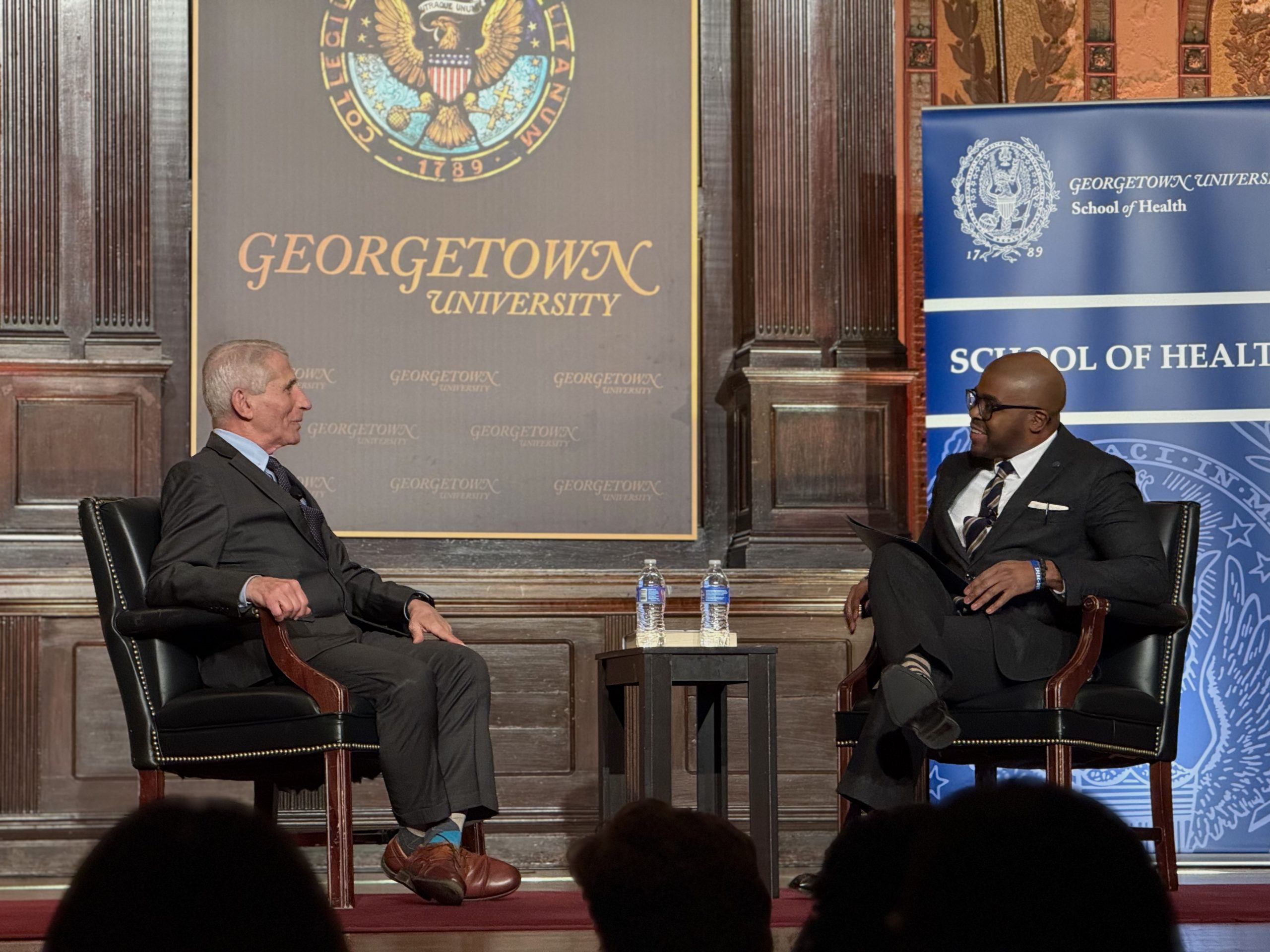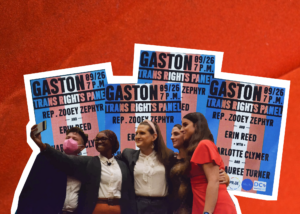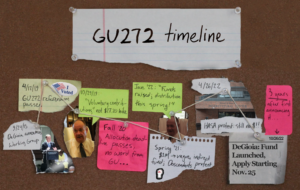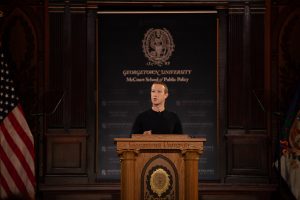On Wednesday, Jan. 15, Dr. Anthony Fauci, former chief medical advisor to the President of the U.S. and a professor at Georgetown’s School of Medicine, engaged in a reflective conversation with Christopher King, dean of the School of Health, in Gaston Hall. Students packed the auditorium to hear from Fauci. The event, “A Journey in Public Health,” was hosted by the School of Health and highlighted significant moments in Fauci’s personal life and career as a public servant.
Dr. Jennifer Bouey, dean of the Department of Global Health in the School of Health, opened the event by introducing Fauci and highlighting his achievements in medicine and research. Soon after, King started the conversation by discussing Fauci’s new autobiography, “On Call: A Doctor’s Journey in Public Service,” which was published last year.
Referenced often throughout the conversation, “On Call” recounts Fauci’s journey from growing up in a working-class Brooklyn neighborhood as the son of a local pharmacist to dedicating his life to public service.
“[My father] cared very little about finances, and when I went back in my mind and analyzed it, he just cared about the neighborhood, the community,” Fauci said. “From the time I was a child, I used to deliver prescriptions on my Schwinn bike around the neighborhood. I used to help behind the counter, sometimes in the weekends and the evenings and sometimes in the summer.”
Inspired by his father, he chose a career focused on helping others.
“The attitude of what’s really important is taking care of people, not necessarily making a profit from them. So the idea of public service was ingrained in,” Fauci said.
This idea of helping people also led Fauci to pivot his career later to tackle HIV. Fauci was a key figure in the federal response to the HIV/AIDS crisis in the 1980s and 90s, when HIV-related deaths peaked in the U.S. The crisis disproportionately affected people from the LGBTQ+ community, especially men, but some political leaders dismissed or hid the extent of the crisis.
“I really wanted to take care of these people at the same time as studying the disease, and I also had this feeling of profound empathy for people who were already somewhat disenfranchised because of the stigma associated with LGBTQ at the time,” Fauci said.
His passion for social impact led him to serve as Director of the National Institute of Allergy and Infectious Diseases during the terms of seven presidents—beginning in 1984 with Reagan and ending in 2022 with the Biden administration—where he often had to tell the harsh truth to political leaders.
Through the years, Fauci heeded the advice that a friend gave him years ago, which he shared in Gaston Hall:
“When you go into the White House and you go under that awning of the lower level of the West Wing, whisper into your own ear: ‘This may be the last time I’m ever going to come into this building because I might have to tell the president, the vice president, or the people around them an inconvenient truth that they may not want to hear, and then you may not get asked back again,’” Fauci said. “Don’t ever be afraid to tell somebody something, as long as it’s the truth.”
This commitment to truth was critical during the COVID-19 pandemic, when Fauci had to publicly contradict President Trump.
“People out there think that we’re enemies, [but] I had a very good relationship with President Trump,” Fauci said of before the pandemic.
This relationship started to change when Trump began to promote factually incorrect information about COVID-19, Fauci said.
“[Trump] started to say things that were not true, like the virus is going to disappear like magic, or these magical elixirs that people are talking about, hydroxychloroquine and ivermectin, work—when I knew as a scientist, not only did they not work, but they actually could be harmful.”
At this moment, Fauci knew he had to speak the truth.
“I felt that I had a responsibility for my own personal integrity, but more important to the American people who I serve, that I had to do something which was profoundly uncomfortable for me, and that was to contradict the President of the United States publicly,” Fauci said. “That’s when they [Trump’s staff] started the disinformation discrediting campaign, which goes to this day.”
After the conversation with King, Fauci opened the conversation to student questions. One consistent theme of the questions was finding the courage to do the right thing.
“When you are dealing in a very charged situation, you gotta dig deep down in yourself and say, ‘What is the correct, proper, right, ethical, scientifically-based thing to do?’ And then that becomes clarity,” Fauci said. “When that clarity is there, the other stuff is noise.”







As an mba alum, I refuse to give any more money to Georgetown after hiring this lying criminal who routed money via Eco health alliance to the Wuhan lab that created and leaked the Covid virus.